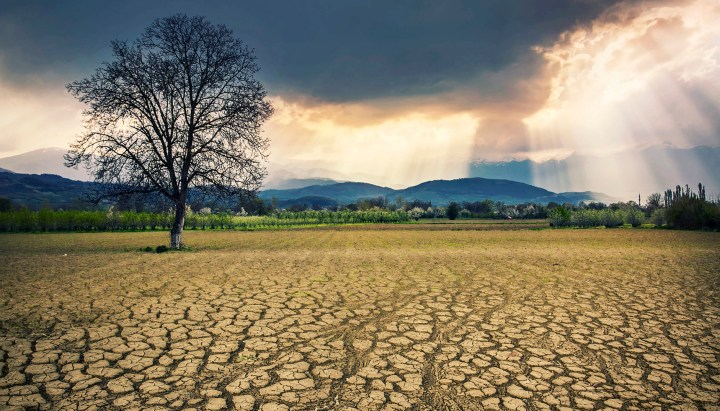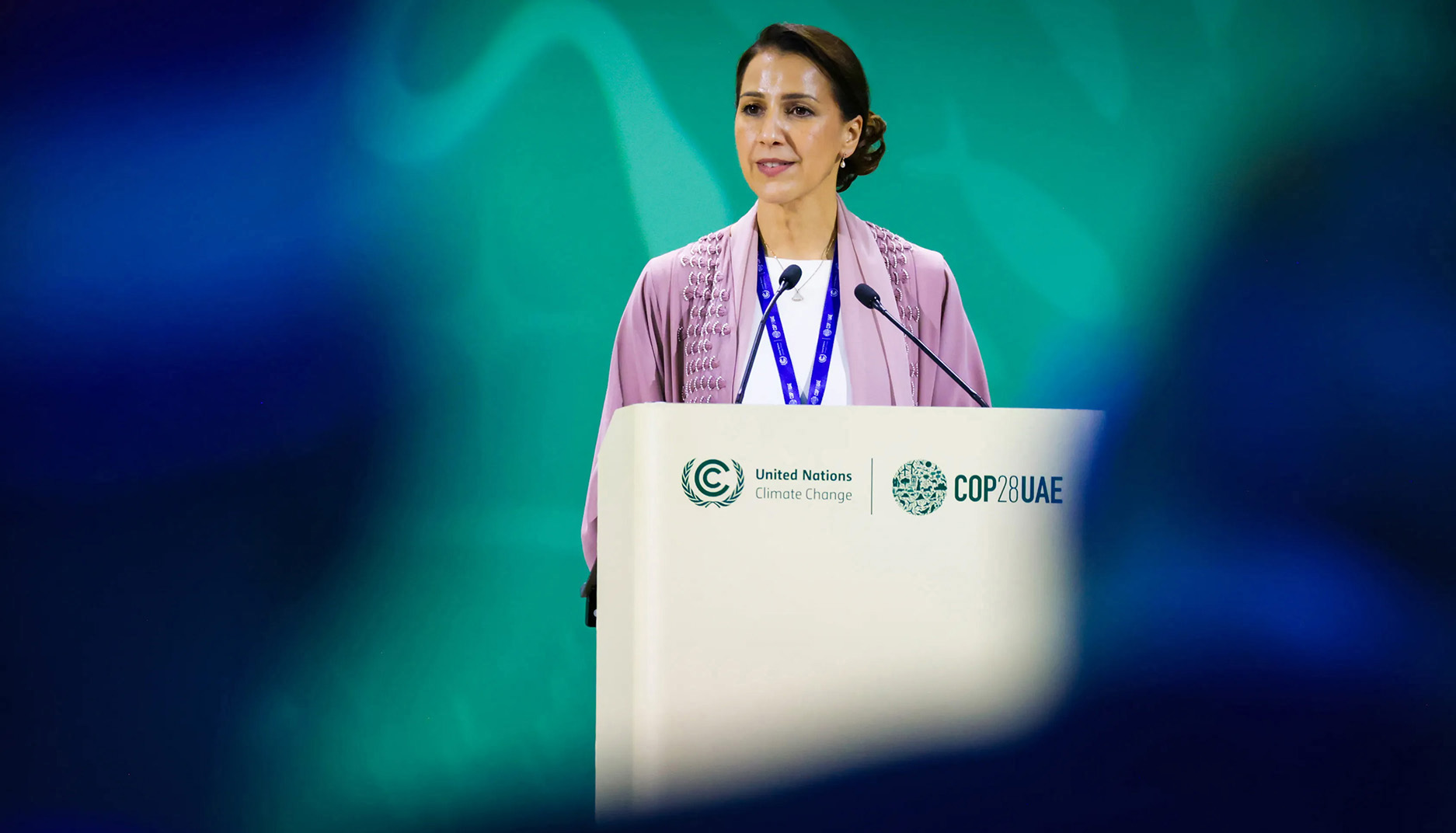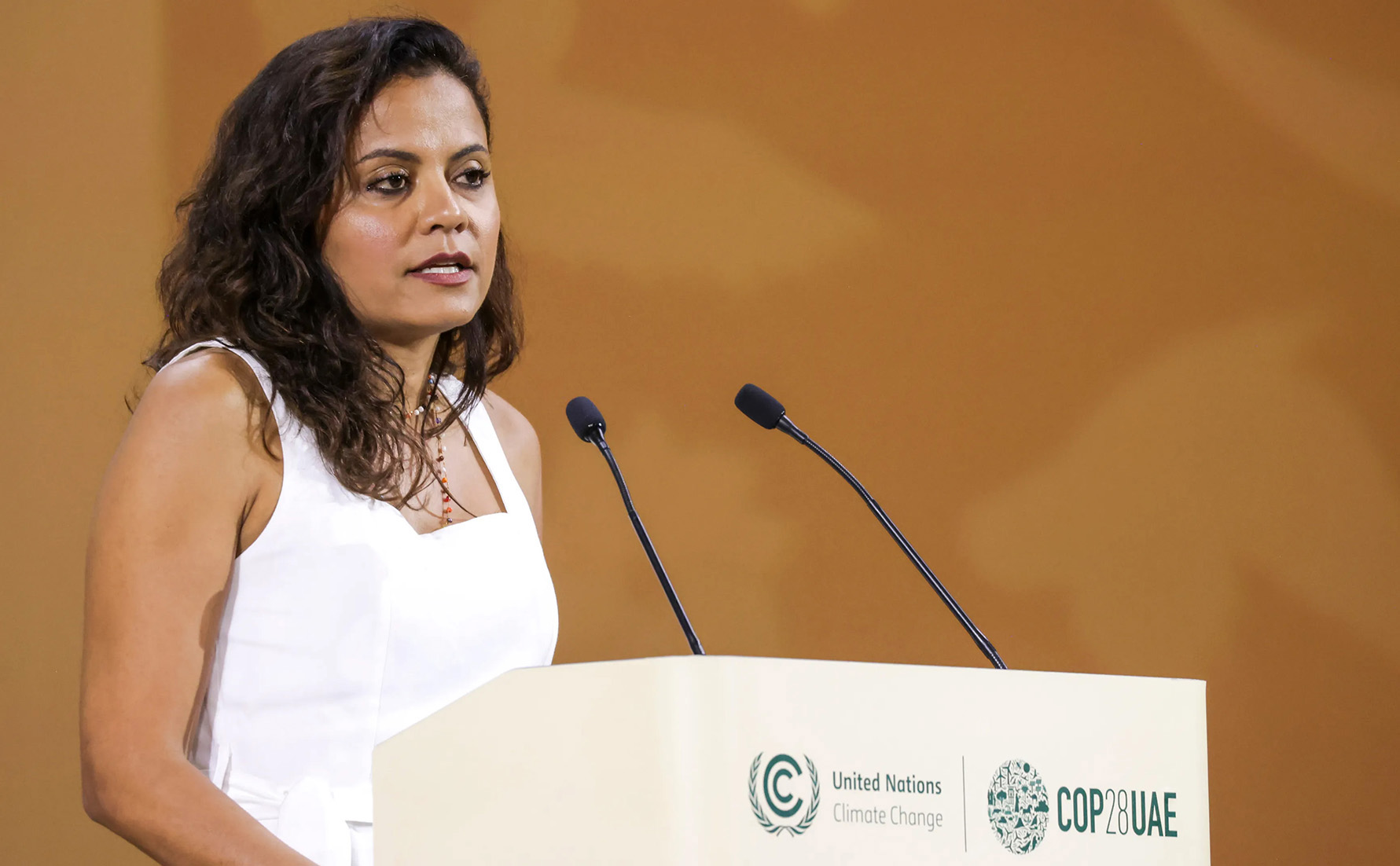CLIMATE TALKS
Plans adopted at COP28 to transform agrifood systems and ensure food security

Though the roadmap is ambitious and detailed, critics say it doesn’t go far enough in tackling ‘the massive power inequalities imposed by the handful of companies that define what we grow and eat’.
For the first time in 28 years, the United Nations’ annual global climate meeting put food systems on the main agenda, and for the first time dedicated a day to it – 10 December.
“Food systems will now be centre-stage in all future COPs,” said Mariam Almheiri, the United Arab Emirates minister for climate change and the environment. “Even if you were able to fix the just energy transition and go completely renewable, you still wouldn’t be able to reach the 1.5 degrees if you don’t solve the food systems issue,” she told Bloomberg. “That’s how big of a cause this is.”
And indeed, COP28 has seen some major food-systems achievements. Headlining these is the “Emirates Declaration” (the COP28 UAE Declaration on Sustainable Agriculture, Resilient Food Systems and Climate Action), signed by more than 150 countries committing to accelerate their actions on food systems, including integrating food systems into their Nationally Defined Contributions (countries’ individual climate-action plans).
“The endorsement of the declaration by 152 states an important signal to the world that food systems and sustainable agriculture do matter in the global climate-change agenda,” said Germany’s secretary of state for food and agriculture.”
The declaration was endorsed early at COP, on 1 December, and Food, Agriculture and Water Day on 10 December kicked off with a huge session on its implementation. Speeches and discussions began with Almheiri (partly responsible for ensuring food systems made it onto the main agenda), former UN food envoy Sir David Nabarro, who moderated the session, UN deputy secretary-general Amina Mohammed, and panels featuring ministers of environment, energy, agriculture, innovation and sustainability from the US, Rwanda, Uruguay, Fiji, France, Germany, the UK, the Netherlands, Sierra Leone and Norway.

Mariam Almheiri, the UAE’s minister of climate change and environment, predicted that food systems will be ‘centre-stage in all future COPs’. (Photo: COP28 / Christophe Viseux)
Convergence and balance
“Convergence” was the dominant theme – understanding the interconnectedness of climate, biodiversity, food and water, alongside the challenges faced by farmers and the needs of consumers. Food systems contribute an enormous proportion of global emissions (34%), use 70% of all freshwater, and are the primary driver of biodiversity loss, says the UN Environment Program. Speakers’ wide-ranging comments did not simply belabour the impacts of food systems, but more optimistically focused on the huge role these systems can play in restoring balance to nature.
The shift at both high political levels and in the private sector to accepting the centrality of food to climate impacts and solutions bodes well for turning intentions into practice.
Renata Miranda, secretary of innovation, sustainable development, irrigation and cooperatives in Brazil’s agriculture and livestock ministry, called it a “magical paradox”.
“Agrifood is the only economic system able to reduce global warming by reducing carbon. It’s a magical paradox, but behind this we are converting CO2 into biomass, into food. Agrifood systems are part of the solution to the climate crisis,” she said.
So, what are COP28’s big achievements for food systems?
Solutions and practical implementation were central to an estimated 675 food-systems events. In a kind of non-political complement to the Emirates Declaration, more than 200 “non-state actors” jointly called for the transformation of food systems for people, nature and climate – signed by businesses, civil society groups, city networks, philanthropic organisations, financial and research institutions – and called for a set of global targets and transition pathways by COP29 at the latest.
To help define those targets and pathways, the UN’s Food and Agriculture Organization (FAO) launched a “global roadmap” – to be released in three stages from COP28 to COP30 – that recommends specific strategies and plans for countries to transform agrifood systems and achieve food security, while keeping within the 1.5°C global heating threshold defined in the Paris Agreement.
Read more in Daily Maverick: COP28 news hub
The FAO’s Maximo Torero, who headed the roadmaps’ creation, said all actions needed to build on existing efforts, and the roadmap proposes 120 actions across 10 categories (livestock, aquaculture, crops, healthy diets, forests and wetlands, soil and water, food loss and waste, clean energy, inclusive policies, and data).
Though the roadmap is ambitious and detailed, critics say it doesn’t go far enough in tackling “the massive power inequalities imposed by the handful of companies that define what we grow and eat”, in the words of Emile Frison, a member of the International Panel of Experts on Sustainable Food Systems. But most observers agree it’s yet another important piece of a huge, complex puzzle that needs to come together if food-systems transformation is to happen – as is the COP28 Agriculture, Food and Climate Action Toolkit, designed to help countries’ policymakers translate global climate and food commitments into local actions (such as how to include food production, consumption and loss-and-waste into Nationally Determined Contributions and National Adaptation Plans.
Making the impacts of climate change real was Ugandan farmer Elizabeth Nsimadala, who described how her avocado seedlings were destroyed by a drought that lasted for three and a half months instead of the one month predicted. Nsimadala, who is also president of the Eastern Africa Farmers Federation of Uganda, is one of 500 million small-scale farmers worldwide who together produce one-third of the world’s food, yet receive less than one-fifth (19%) of climate finance for agrifood systems. She told COP28: “Climate change is upending farmers’ livelihoods on a massive scale. It has really affected each and every farmer. We need drastic actions.”
But there is still a collective holding of breath about whether the final text of the Global Stocktake will include food and agriculture.
Overall, things have gone well for food systems at COP28 – and the shift at both high political levels and in the private sector to accepting the centrality of food to climate impacts and solutions bodes well for turning intentions into practice. There was huge emphasis on reducing food loss and waste (among the main causes of climate change, responsible for 8% to 10% of the world’s greenhouse gas emissions) and on the power of consumers’ choices to help drive change in line with climate-smart values, such as eating less meat, or demanding carbon- and water-footprint information on food products.

Renata Miranda, Brazil’s secretary of innovation and sustainable development in the agriculture and livestock ministry, said agriculture and food systems are ‘part of the solution to the climate crisis’. (Photo: COP28 / Christophe Viseux)
Disclosures of methane emissions
This COP saw major dairy producers such as Danone and Nestlé along with four other global food companies committing to full disclosure of their methane emissions. Methane traps heat 80 times more effectively than carbon dioxide over 20 years, making it a much more potent contributor to global heating. This greenhouse gas is released into the atmosphere mainly by burping cows, manure and rice farming (together far ahead of oil-and-gas operations, and coal mining), as well as by food waste in landfills, and by oil, gas and coal mining and processing. Reducing methane is one of the strongest levers we have to reduce the greenhouse gases driving climate change.
The UN’s Mohammed underscored the importance of accelerating food systems transformation and “mainstreaming” food-systems policy to slow down global heating: “The UAE Declaration emphasises what we know already – that any path to realise the Paris Agreement must include agriculture and food systems. We need to urgently strengthen our collective efforts, using food systems as a lever to accelerate transformation.”
That “mainstreaming” is happening: Brazil, Cambodia, Norway, Sierra Leone and Rwanda have formed the “Alliance of Champions for Food Systems Transformation”, each committing to using a “whole-of-government” approach to transforming their national food systems “to deliver universal access to affordable, nutritious and sustainable diets” as well as other climate and biodiversity goals.
But there is still a collective holding of breath about whether the final text of the Global Stocktake will include food and agriculture. Dr Ildephonse Musafiri, Rwanda’s minister of state for agriculture and animal resources, prefaced his comments by saying he’d “heard a rumour” that the 27-page Global Stocktake text at that time was “lacking” on the food system. “I hope those who are drafting are hearing us.”
He described how Rwanda and other African countries are at the confluence of devastating climate impacts, a relative lack of capacity to counter them, and food insecurity. “Yet it is within our power to harness the potential of agriculture and food systems as a driving force of innovative responses to climate change, and to unlock shared prosperity for all.”
Joao Campari, the Worldwide Fund for Nature’s global food practice lead, voiced the frustration of many: “A text that ignores food effectively tears up the Paris Agreement.” In 2015, almost 200 countries signed the Paris Agreement, committing themselves to keeping global heating to below 2°C, and ideally to 1.5°C (compared with the pre-industrial era). “It does nothing other than set us up for collective failure,” Campari said. “Time is running out and negotiators need to act now.” DM
The COP28 Declaration on Sustainable Agriculture, Resilient Food Systems, and Climate Action signed by 152 countries (as of 10 December 2023) is on the COP28 website.
A list of the 200 or so signatories to the Non-State Actors Call to Action can be found here.
The UN’s Food and Agriculture Organization released “Achieving SDG2 without breaching the 1.5C threshold: A Global Roadmap”, the first part of what FAO describes as a three-year journey to transform agrifood systems, starting at COP28 and concluding with COP30. It sets out the vision for agrifood system transformation – COP29 will see regional-level details mapped out for countries, and COP30 will feature “Country Action Plans”.




















 Become an Insider
Become an Insider
Comments - Please login in order to comment.